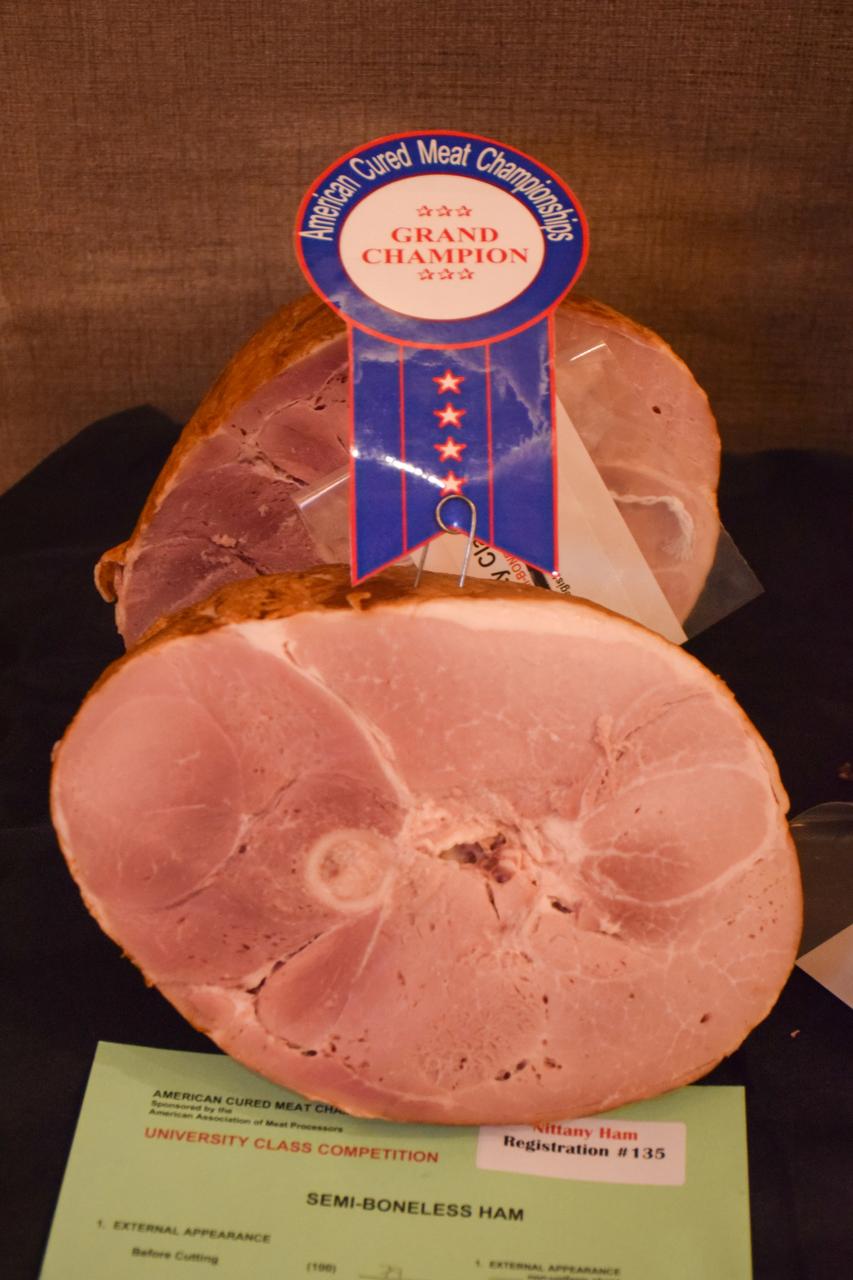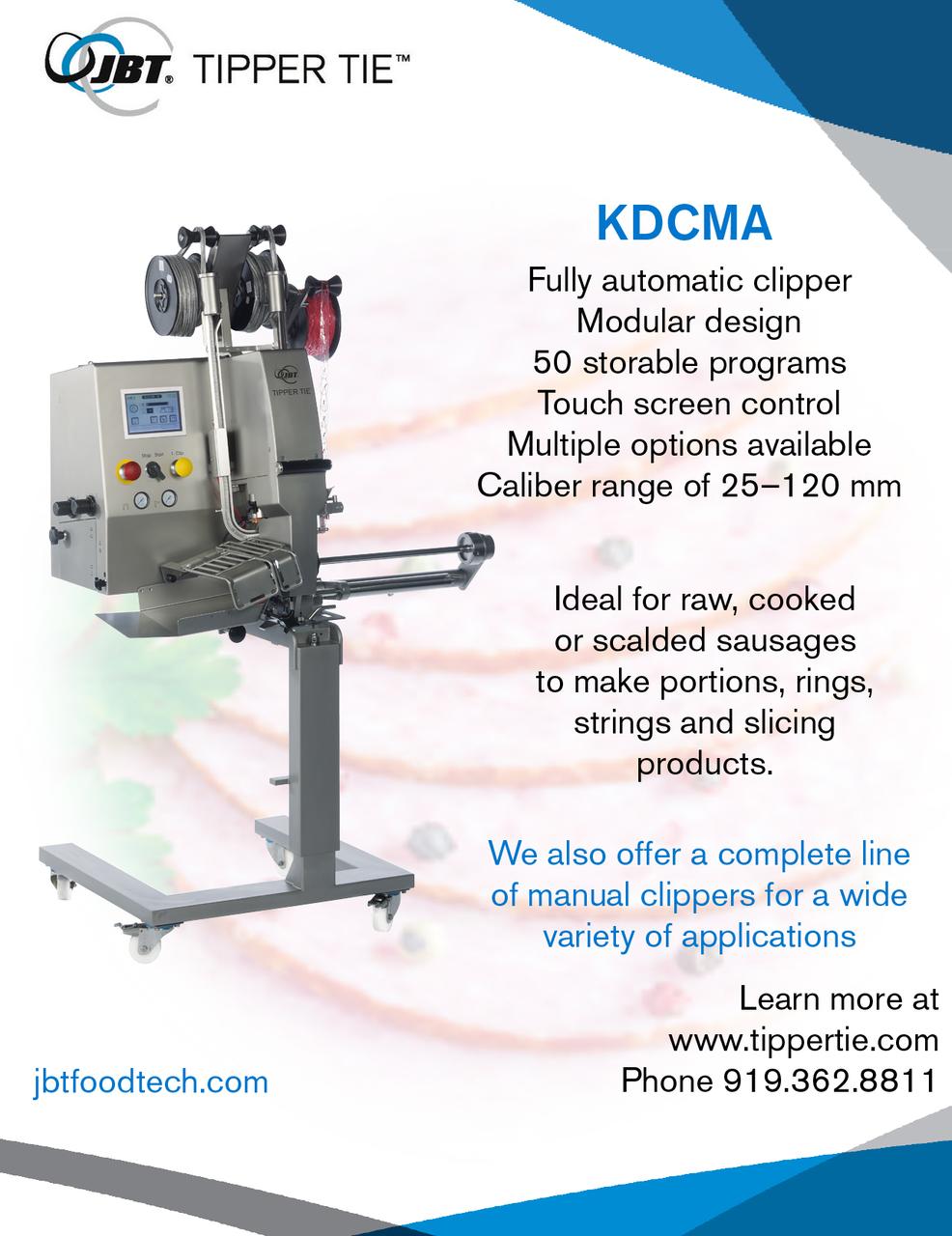meat science support
industry issues
By Sam Gazdziak
meat science schools and students benefit greatly with steady support from the industry.
supporting
meat science
College students can learn about their prospective careers in a couple of different ways. One is theoretical — attend your classes, pay attention to the lectures, read your materials. One is practical – get an internship or other means of hands-on work, or talk with someone who is industry to learn the realities of the profession. Both are important to get a realistic idea of what their future career might entail.
The meat industry is no different. Students at meat science schools get lectures and homework, but they also get the chance to work in their school’s meat labs, breaking down carcasses and learning how the machinery works. The course learning and the practical experience work hand-in-hand to give students a well-rounded training for their futures.
For the last few years, the celebrated American Cured Meat Championships has featured a student class. The idea was to give students a chance to put their learning to the test, as well as to learn from the cured meat masters who participate in the ACMC.
“It’s a friendly competition to teach students more about the small to medium processors and opportunities for employment that they might be able to entertain, and then to learn more about processed meats in that size and capacity,” explains Dr. Jonathan Campbell, Meat Extension Specialist and Associate Professor in Animal Science at Penn State University.
When Campbell was attending Iowa State University, he had the benefit of working closely with AAMP members through Dr. Joe Cordray, then the meat extension specialist at the school.
“I learned a ton about processed meat specifically, working in the competition and talking to the people who won every year,” he explains. Adding a student competition portion to the ACMC was a way to give students another chance to get that same kind of experience.

Dr. Johnathan Campbell
Each year, the University Class has two product categories. This year’s categories were a semi-boneless ham and cured specialty meat products. Ann Reyburn, a Penn State student, won both categories. Students from Iowa State, the University of Nebraska-Lincon, Oklahoma State University and Oklahoma State Panhandle University also competed.
Those student-processor conversations that Campbell wanted took place in several different ways. Secrets were shared when the ACMC room was opened for public viewing after the winners were announced. More than one processors was heard to give out compliments to the students’ entries. Some of the conversations even took place before the ACMC. In one instance, students at Oklahoma State University had smokehouse problems. So Ralph’s Packing, located in nearby Perkins, Okla., opened their shop floor after hours and let the students use the facility.
“The story Gary Crane [of Ralph’s Packing] told me was that he was so impressed by their work ethic and their enthusiasm about making products,” Campbell says. “That was the whole goal. I wanted them to get more excited about processed meats and applying meat science theory into practice. That’s really where you add value to the education and actually do something that we talk about from the science and theoretical standpoint. When you really apply it, it helps you learn better.”
Meat science students have more opportunities to connect with the meat industry than ever. The upcoming 74th Annual Reciprocal Meat Conference, organized by the American Meat Science Association, takes place August 15-18 in Reno, Nevada, with virtual options as well. The RMC is a premier event both for its educational schedule as well as its networking opportunities. This year’s event has barbecue contests, a career fair, a quiz bowl and a student mixer, in addition to technical sessions and presentations. One of the special sessions will discuss the future of meat science, taking the perspectives of departments, instructors, students and employees.
For more information about this year’s RMC, go to https://meatscience.org/events-education/rmc.
For those processors that are looking to support meat science institutions, there are multiple ways to help. Obviously, financial support is always needed. However, there are plenty of opportunities to establish a relationship that go beyond donations. Processors and suppliers alike can donate their time, knowledge or materials as well.
“The more of a relationship that either of those groups develop with the faculty and staff at a particular facility, either that’s near them or they’ve heard a lot about, then they have even more of a personal buy-in,” Campbell explains. “Perhaps they have a professional reason for developing that relationship, but once you have that personal interaction, you want to see those folks succeed, you find out what are some of their limitations and how you can actually help.”

This semi-boneless ham from Penn State student Ann Reyburn won in the University Class at the 2021 American Cured Meat Championships.

